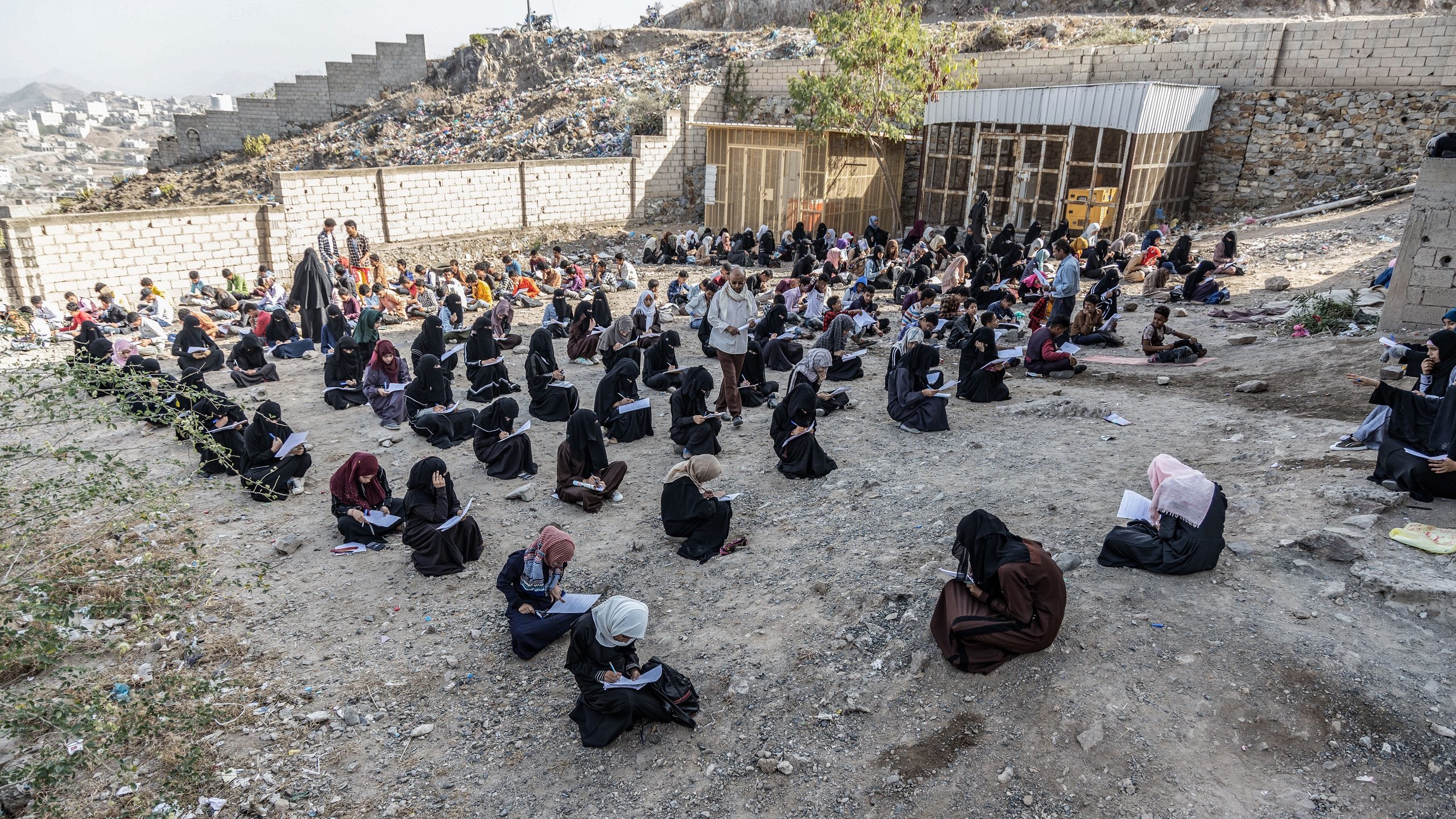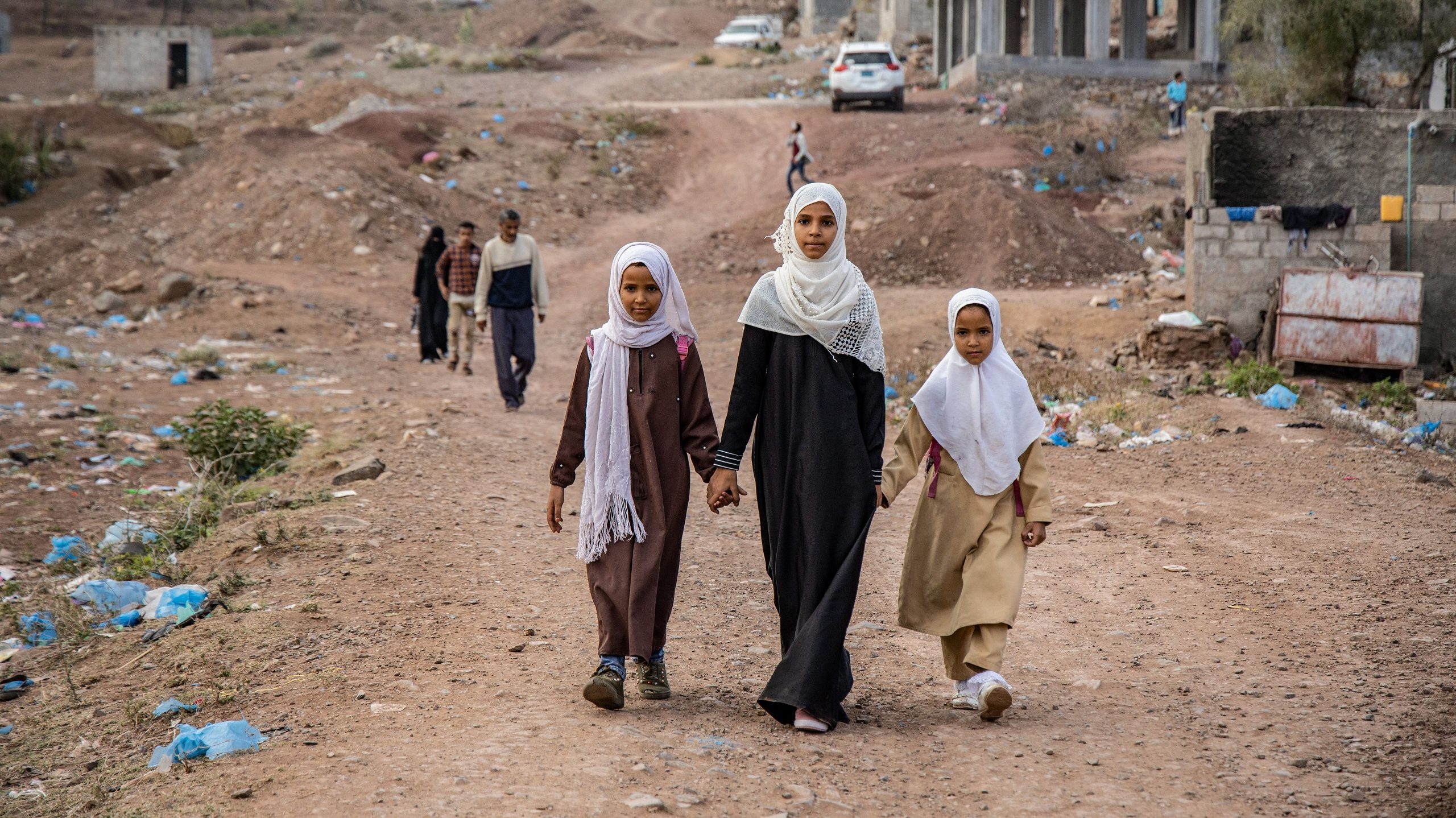UNICEF: 6 Million Yemeni Children Could Have Their Schooling Interrupted
Unpaid teachers leaving jobs could see dropout rate rise threefold
The number of Yemeni children out of school could triple to 6 million if nothing is done, particularly if educators continue to go unpaid, UNICEF warns.
Children are bearing the brunt of the country’s civil war, which began over six years ago. In 2015, a million children dropped out of school. Today, a little over 2 million youngsters are missing classes due to work obligations, safety concerns en route to or in school, and lack of room.
More than 520,000 children have difficulty attending school because of extreme overcrowding, according to the newly released UNICEF report “Education Disrupted: Impact of the conflict on children’s education in Yemen.” This is particularly the case for students who have been forced to flee their homes.
Forty-seven percent of secondary-school-age girls and 53% of their male counterparts were projected to be registered in school before the pandemic, the report continues. The novel coronavirus has significantly exacerbated the problem.
Girls are more likely to quit school for a variety of factors, including a lack of female-only restrooms.
Missing school is not an issue for the Houthis. In fact, several years back, one of their leaders proposed closing down schools for several years and sending the students to fight on the front lines to hasten the end of the war
Yemen’s civil war started at the tail end of 2014 when the Houthi rebels took control of Sanaa, the capital city, an action that was preceded by the capture of the northern governorate of Saada.
“Missing school is not an issue for the Houthis. In fact, several years back, one of their leaders proposed closing down schools for several years and sending the students to fight on the front lines to hasten the end of the war,” Abdulghani al-Iryani, a senior researcher at the Sanaa Center for Strategic Studies, told The Media Line.
Today, approximately 805 schools have been closed in Houthi-controlled areas and replaced by schools sympathetic to the rebels, he says.
The deteriorating security situation in Yemen has had a devastating impact on the internationally recognized government’s ability to provide basic government services, be they health care, education in general, or compensating public servants, including teachers.
“More than 2,500 schools – at least one in six – are unfit for use because of the conflict, either because they were destroyed, used for military purposes, or taken over as a shelter for displaced people,” a spokesman for UNICEF Yemen told The Media Line. “The longer children are away from school, the more risk they face and the less likely they are to return.”

Kholood and her classmates take exams in the schoolyard due to the lack of space inside the school building, Taiz, Yemen, 2021. (©UNICEF/Al-Basha)
“More than 170,000 teachers – 64% of the workforce – have not received a regular salary since 2016, which has impacted teacher attendance, retention, and the quality of teaching in the country,” it added.
Education is their only way to secure a better future and to help put Yemen on the path to recovery
The worse the violence gets, the more children’s schooling will be affected, disrupting the country’s societal development, UNICEF Yemen reported.
“Education is their only way to secure a better future and to help put Yemen on the path to recovery,” the organization continued, adding that the only way to ensure that students stay in school is to bring an end to the conflict.
In the meantime, preventing rising dropout numbers requires ensuring educational institutions are off-limits as targets in the ongoing war, and the global community stepping up to provide financial incentives to teachers so that they stay in their jobs, UNICEF says.


